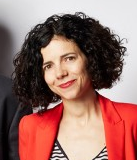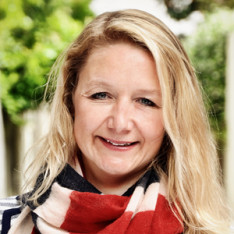The Mad Men Industry – Is Australia worse than other markets for gender equality?
After a Communications Council report last week showed women represent just 27.3 per cent of creative departments in Australia Miranda Ward explores how Australia compares to other markets.
“Australia is a country that I truly admire in many senses, but gender equality, particularly in the advertising industry, is not one of them.” Those were the thoughts of Laura Sampedro, the Spanish former ECD at creative agency BMF and now creative director at Wieden + Kennedy in London.
Sampedro has also worked in her native Spain, prior to her stint in Australia with BMF she was head of strategic planning at Publicis Lado C.
“The female presence in top management roles, and more specifically the presence of creative directors and executive creative directors is way under the UK and Spanish market ratios.”
In the UK, females account for 26 per cent of executive management positions across media, advertising and marketing communications agencies, according to the most recent data from the UK’s Institute of Practicioners in Advertising’s (IPA) 2013 Agency Census.
In Australia, as reported by Mumbrella last week, women account for 13.5 per cent of creative directors or more senior positions within creative departments, according to the Communications Council’s 2013 Salary Survey.
Host CEO Suzie Shaw said: “I spent 14 years in London and returned to Australia thinking that London had an issue. Then I arrived here and thought ‘Oh my Lord, London has it brilliant’.
“Maternity conditions are so much poorer here, and I think that has a huge impact on people’s desire and ability to return to work.”
Australia currently provides 18 weeks of paid parental leave at the flat rate of the minimum wage. In the UK female employees are entitled to 52 weeks of maternity, or adoption, leave of which 39 weeks is paid with the first six weeks paid at 90 per cent of full pay, with the remainder at a fixed rate of $231.07/week as of 2011.
Becky McOwen-Banks was new to the Australian industry, having moved here seven months ago to take on the ECD role at Sydney-based independent creative agency New Republique, however earlier this month was let go from the agency and has returned to London.
“Australia has more entrenched views, it’s unfortunate to say,” she admitted when asked whether the UK or Australia was more sexist.
“It seems more acceptable here to be sexist, where in the UK men call each other out for it. Over here it seems a bit of a joke and you can get away with it and it’s only when it’s challenged that action seems to happen.”
Agreeing with the IPA stats, McOwen-Banks said in the UK there seems to be a higher proportion of women already in top level positions which makes discussing gender balance easier.
“In the UK there does seem to be a higher proportion of women at that top sphere so it’s talked about anyway or it comes up more regularly or they’re already learning about how women approach things differently. It’s already on the table there,” she said.
But how do those in the industry get it on the table for discussion locally?
McOwen-Banks has worked with mentor and support organisation SheSays in the UK and during her time in Australia worked with founder of the local branch in Sydney Cat Pitts-Tucker to organise the ‘Who’s you momma’ mentor program.
“It’s a support network for young women in creative industries, in order to put them in touch with other women in the industries and also give them access to mentors,” she explained.
However, while the London and New York versions of the organisations are strictly women only, the Sydney branch differs having invited key men from the industry to join.
“We’ve just had to accept in order to change perspectives we’re going to have to bring key males along on the journey so that the word about strong females and how women relate to things, we need to invite them along to the party,” she said.
It’s a common idea across the various organisations looking at gender balance and supporting women with The Communications Council’s gender diversity working group looking to Elizabeth Broderick’s “Male Champions of Change” program which aims to ensure the issue of women’s representation in leadership is elevated on the national business agenda, as reported by Mumbrella last week.
Miranda Ward




Big deal – women dominate every other part of the marketing industry.
Come back. We miss you.
Hi Talent
I am a mum and own a business. I appreciate and understand the need for men and women to have work life balance.
Come and chat to us before you decide to leave the industry.
Regards
Virginia
Only 3% of creative directors globally are women, according to Cannes Lions, so it looks like Australia is more progressive than most.
What about cultural diversity? It is sometimes quite confronting being the only person of colour at industry conferences or events. Now what about being a woman of colour?